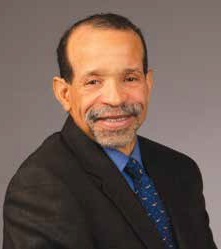by
Sean Ruck, Contributing Editor | March 28, 2016
From the March 2016 issue of HealthCare Business News magazine
With the ACC’s annual conference fast approaching, HealthCare Business News caught up with ACC President Kim Williams to learn about his background, the latest with the ACC and his thoughts on where health care is and where it needs to be.
HCB News: How did you get involved in health care?
KW: I grew up on the South Side of Chicago, with poor access to care, not being able to afford primary pediatric care — we had one, but there were access issues in urgent situations. After my second pneumonia as a child and being admitted into a South Side hospital, I was lying there on an ice bed, and I decided right then to become a South Side of Chicago pediatric physician. But things turned out a bit different. In medical school, I found learning about the heart was most interesting and dealing with heart disease was a lot more rewarding. Fortunately, I was still able to realize my goal of delivering inner city health care, as most of my career was at the University of Chicago on Chicago’s South Side. I focused on cardiology and did the majority of my training there. I had the opportunity to serve the community, while in college, medical school, cardiology and nuclear medicine training. I served on the faculty there for 24 years.
HCB News: How did you get involved with the ACC?
KW: It was a compilation of opportunity, circumstance and proclivity. I grew into the fairly new field of nuclear cardiology. I happened to get involved relatively early in advocacy because this area was the subject of “turf battles” between specialties. But leaders in the field were convinced that growth of the specialty could help many patients with heart disease. We needed to ensure access to nuclear licensure for cardiologists and anyone who is properly trained. My work in these areas led to leadership positions in the American Society of Nuclear Cardiology.
At the same time, my concern for inner city health led to working with the Association of Black Cardiologists. Both of these organizations opened the opportunities for impacting policy regarding access to care, clinical guidelines and reimbursement. During my year as ASNC president, I was nominated to the board of trustees of the ACC by my faculty mentor at the University of Chicago, Morton Arnsdorf. He had helped me create the nuclear cardiology laboratories at U of C. Before he passed away, he also nominated me for ACC president.
HCB News: Why should people consider joining the ACC?
KW: ACC is a very unique organization. Although it is thought by some to be dedicated to improving the practice of cardiology, the mission of the College is to transform cardiovascular care and improve heart health. Sometimes, of course, that actually is by improving the practice environment of cardiologists, but it is so much more. Opportunities to influence health policy have come to ACC due to recognition by regulators and legislators that we can be trusted to develop appropriate use criteria and quality metrics to improve the value-proposition of ordering tests and procedures. We have a commitment to quality in a way that provides a roadmap.
